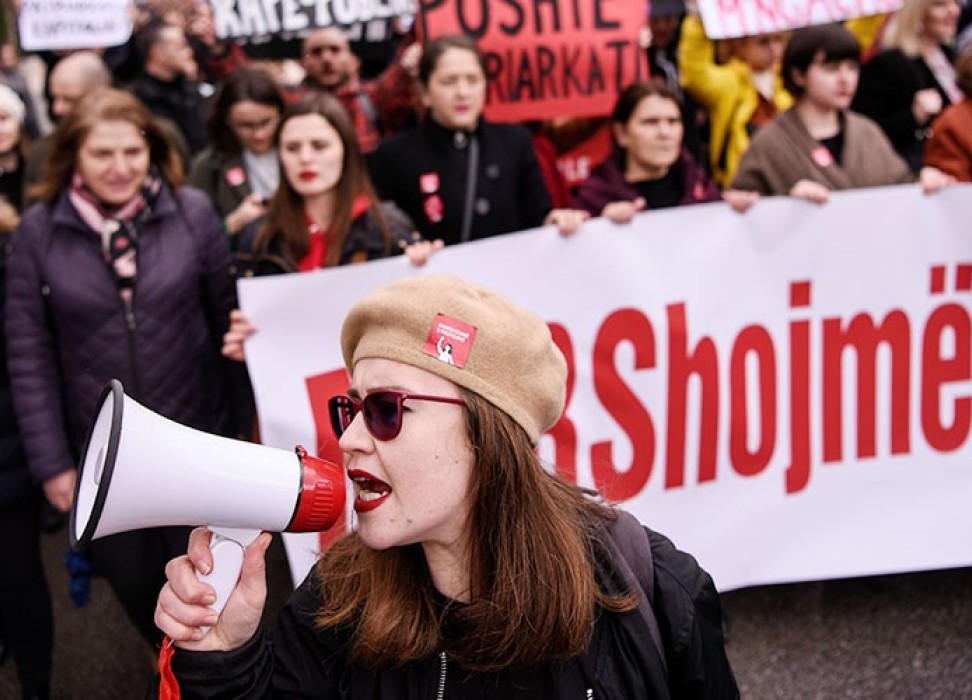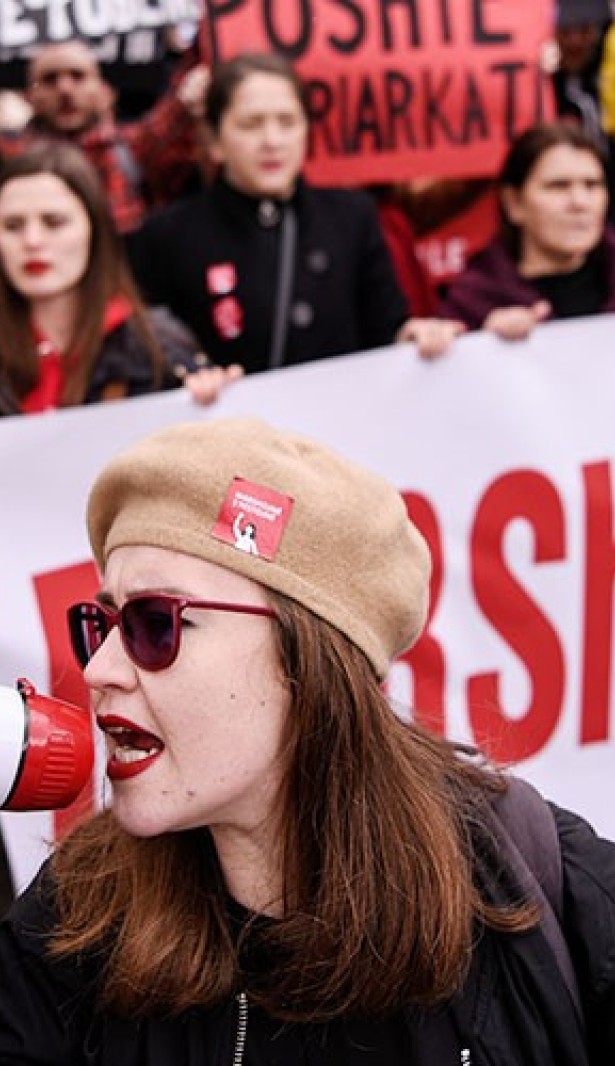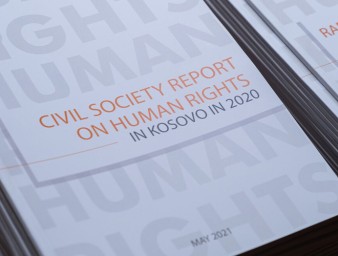Ground-breaking report on human rights in Kosovo*
04 September 2020

The demand for “better protection for human rights for all” is at the centre of a new annual report on Kosovo.
Marigona Shabiu, editor of the report and also Executive Director of the Youth Initiative for Human Rights describes it as a “historic initiative,” bringing together for the first time 21 non-government organisations (NGOs) to produce a comprehensive overview on the human rights situation in Kosovo.
The report’s intention “to speak up for human rights with one unified voice, is truly an outstanding trust-building effort towards greater cooperation,” she said.
Supported and facilitated by UN Human Rights and the UN Mission in Kosovo (UNMIK), the report looks at a range of human rights issues in Kosovo, many of which its authors believe need urgent attention. Challenges related to civil and political rights, as well as economic, social and cultural rights are comprehensively covered in the 52-page document.
More than 20 years after the conflict in Kosovo, human rights concerns remain prolific, and the two main ethnic communities are still very much divided in many areas.
Despite these divides, both Kosovo Serb and Kosovo Albanian organisations, as well as two Roma organisations, joined forces to produce the report. For Jerome Bouyjou, head of UN Human Rights in Kosovo, this ability to go beyond ethnic lines is a major achievement for human rights.
“The last years have seen a significant gap in human rights monitoring and reporting in Kosovo, and this report has gone a long way to filling that gap,” said Bouyjou. “It is an essential tool to increase the authorities’ focus on the protection and promotion of human rights, and to bring more attention internationally to the situation here.”
The production of the report also directly supports UNMIK’s Trust Building Strategy for Kosovo, which has at its core the objective to create space for Kosovo society ‘to be actively involved in the decisions that affect them.’
Among a wide range of topics covered in the report, ongoing issues of concern in Kosovo include limits on freedom of expression and opinion, and on the right to information. Media in Kosovo lacks independence, and in some cases, journalists are threatened with dismissal if their products are critical of the government or political parties. Regarding the right to access to information, there were 106 complaints filed last year where media or individuals had been denied access to public documents.
Reduced access to employment, particularly for women and young people, as well as ‘several violations’ of workers’ rights to just and favourable conditions were also issues flagged as concerning.
Gender rights are also a focus. The report notes that despite having a legislative and policy framework in place, women continued to face procedural difficulties in reporting violence. Courts in Kosovo continued providing low sentences in cases of gender-based violence, while some judges still encouraged family reconciliation and blamed victims for crimes perpetrated against them. The authors of the report advise gender equality training for judges, prosecutors and the police.
The continuous violation of women’s rights to property and inheritance in Kosovo is at ‘worrying levels,’ according to the report. Displaced persons and returnees also continued to experience several challenges to the enjoyment of their property rights.
Concerns around the ‘right to truth’ also form a significant component of the report. As a consequence of the 1998-1999 armed conflict in Kosovo, thousands went missing. At the end of 2019, there were still more than 1600 people unaccounted for, violating their family members’ right to truth. Despite various commitments by the authorities to clarify the fate of the missing, the report urges that more efforts are needed to prevent even more delays. The authors also call on the authorities to adopt an amended and more robust Law on Missing Persons, saying this will go some way to “slightly alleviate” the situation for the families.
For Bouyjou, the fact that the report has already triggered a reaction from the Kosovo authorities to address the human rights situation, is an indicator of its early success. “We congratulate the NGOs on this significant achievement in shedding light on the plethora of human rights concerns that exist today in Kosovo.”
The next annual human rights report on Kosovo is due in mid-2021.
(*) Any reference to Kosovo, whether to the territory, institutions or population, is to be understood in full compliance with Security Council resolution 1244 (1999) and without prejudice to the status of Kosovo.
4 September 2020


